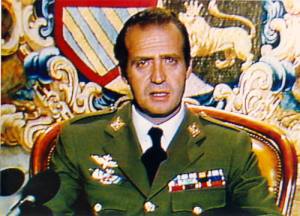

I’ve been chatting with some students about how exceptionally rare liberty is. In all of human history there has been wide-spread respect for liberty in only a small portion of the globe for a brief stretch of time. The problem isn’t that people lack desire for their own liberty. The problem is that people are not usually inclined to extend liberty to others when they have the power to get what they want and constrain what others want. That is, respect for the liberty of others is not natural or automatic. It takes some sort of miracle for people to resist the corrupting temptation of power to protect their own autonomy while denying it to others.
George Washington performed one of these miracles to establish the foundations of liberty. Faced with the opportunity to become dictator for life, he voluntarily relinquished power. Keeping that power would have allowed him to best protect his own autonomy while promoting his own vision of “the good” for others. Instead he put at risk his own autonomy and denied the natural inclination to impose on others by voluntarily leaving office.
If this seems routine to us today, try to name others who voluntarily walked away from total power. Napoleon couldn’t resist the temptations of absolute power. He’s reported to have declared with disgust as he was being dragged away to Elba that they thought he would be another Washington. But Napoleon was no Washington and almost no one else is either.
Remember that Hitler was democratically elected. The Iranian revolution began democratically. The Arab Spring is quickly turning into an Arab Winter, with parties opposed to liberty and tolerance winning elections. It is quite common to see a country’s first, free democratic election turn into its last.
Even the English respect for liberty was not derived from leaders voluntarily relinquishing power. Financial distress forced limits of power on English monarchs, leading to the gradual growth of respect for liberty. The current German and Japanese respect for liberty was imposed on them through conquest.
The only other major example of a leader voluntarily relinquishing power that I can think of is King Juan Carlos of Spain refusing to be Franco’s dictatorial successor and also putting down an attempted coup. Of course, Juan Carlos’ example helped change expectations about leaders throughout Latin America, which helped ignite an expansion of liberty. And the English example planted seeds of liberty in its former colonies.
But other than Juan Carlos and Washington, how many examples could we cite of leaders who truly had the opportunity for absolute power who refused to grab it? If the desire to extend liberty to others were so natural and common, this sort of thing should happen all of the time. It doesn’t. It takes miracle-makers like Washington and Juan Carlos to establish the social expectation so that others tempted to grab power will be prevented from doing so. That’s why we should study their example and sing the praises of these liberty miracle-makers.

As Lord Acton said, “liberty is the delicate flower of a mature civilization.” His two lectures on this, published as The History of Freedom, are well worth a read.
On a side note, “Hitler was democratically elected” is oversimplified. There was no “Vote Hitler” lever in the voting booth. The Nazis didn’t even have a majority in parliament; along with their one major allied party they had only a third of the seats. They cobbled together a messy coalition with some naive partners from other parites, then he manipluated his way into the chancellorship, then he started eliminating his rivals.
I only know because a while back I got called on this point myself!